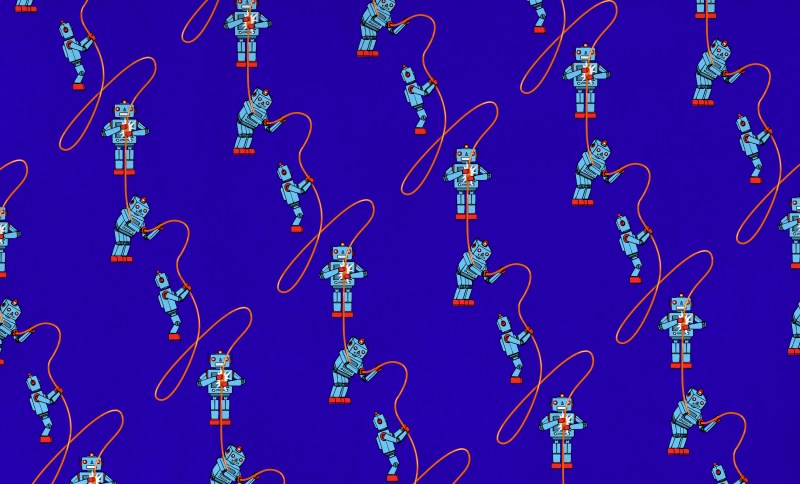I was struck by reading our writeup of the Zenit in Electronics contest – an annual event in the Slovak Republic – that it’s kind of like a decathlon for electronic engineers and/or hardware hackers. It’s a contest, in which students compete presumably initially on a local level, and then up to 32 at the national level. There’s a straight-up knowledge test, a complex problem to solve, and then a practical component where the students must actually fabricate a working device themselves, given a schematic and maybe some help. Reading through the past writeups, you get the feeling that it’s both a showcase for the best of the best, but also an encouragement for those new to the art. It’s full-stack hardware hacking, and it looks like a combination of hard work and a lot of fun.
What’s most amazing is that it’s in its 38th year. Think how much electronics, not to mention geopolitics, has changed in the last 40 years. But yet the Zenit competition still lives on. Since it’s mostly volunteer driven, with strong help from the Slovak electronics industry, it has to be a labor of love. What’s astounding to me is that this love has been kept alive for so long.
I think that part of the secret is that, although it’s a national competition, it’s possible to run it with a small yet dedicated crew. It’s certainly a worthwhile endeavor – I can only imagine how many young students’ lives have been impacted by the exposure to microelectronics hacking through the contest. Indeed, it’s telling that the current chairman of the competition, Daniel Valúch, was a competitor himself back in 1994.
I wonder if the people founding Zenit back in 1984 thought of themselves as creating a perpetual electronic engineering contest, or if they just wanted to try it out and it took on a life of its own? Could you start something like this today?
















Never heard of this event, but, yes, it’s amazing that it’s still around and alive since 1984. Unlike a lot of magazines – back in the 1980s, there were a lot of electronics magazines targeted at the hobbyists. They’d teach the hobbyist how to design power supplies with linear regulators and calculate heat sinks, how to use 74LSxx logic chips to build (then) awesome things, build your own inefficient class A amplifier and pretty basic stuff like that.
Nowadays, hobbyists complain that the few remaining magazines just show off circuits with pre-programmed microcontrollers.
Well, of course nowadays you’d just buy a cheap USB power supply if you need 5V, the “good old” linear regulator design costs more in components alone already and why waste your time soldering together a museum piece? And, of course, the last circuit I build for model railroad enthusiast to drive (model) traffic lights was based on an AT90S1200 microcontroller – and that was in 1997 already.
It’s pretty nice to see that the Zenith in Electronics competition is still cantered around the basic electronics knowledge, while simultaneously providing modern challenges (no assembly of museum pieces, but of circuits useful today!).
To get some feel for the progression – in the early 2000s, it was an electronic die (based on standard logic ICs), while last year, it was “a resettable electronic fuse” (trip current appears to be adjustable via DIP switches, and, unlike a modern current limiters in lab power supplies, it does not enter CC mode, but actually shuts off and has a manual reset switch – and it’s based, as far as I can tell, on standard opamps, transistors and logic ICs).
Sadly, my Slovak language skills are non-excitant. But I can still read the schematics ;)
It is not Zenith, but ZENIT – from Zručnosť, Elán, Náročnost, Iniciatíva, Tvorivosť (Craftsmanshio, Elan, Ambitiousness, Initiativeness, Creativity). It started in the communist Czechoslovakia as an inovation movement of young engineers, mostly (electro) technicians, biologists and chemists, in order to move forward the stagnating comsumer industry.
Thanks for this clarification, Šoaslav. Greetings from South Africa.
Consciously building a ‘tradition’ doesn’t work.
Just do it, if the next generation likes the idea they will continue. In a few generations it will be a ‘tradition’. If not, oh well, you had fun.
Nothing lasts forever. That’s a dumb goal.
All the fun VW stuff is gone with the ready supply of air cooled parts. Nobody sane would touch a modern VW. IC engines won’t last more then another 3 or 4 generations in any case.
“Elf on the Shelf” did a good job of convincing millions of people that it has been a tradition for generations.
Grey Goose convinced people it was better than $13/750ml vodka.
Fell apart the moment they stopped spending millions on advertising. ‘Oh sparkly’ people are stupid, but they have short memories.
Neither Elf of a shelf of Grey Goose has any market staying power. Live by BS, die by BS.